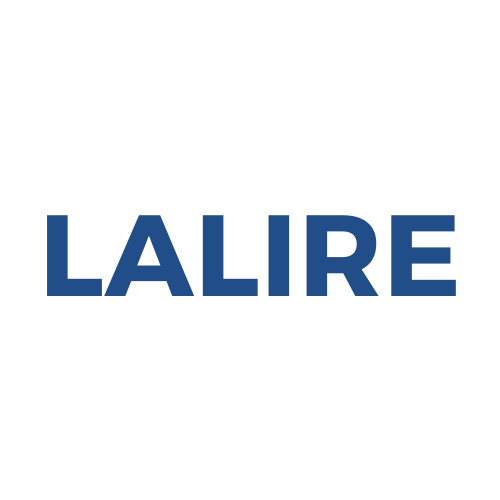
01 Sep Corporate lawyer or legal counsel: Which legal professional should you hire for your operations in France?
Updated on September 23, 2024 by David Lalire
When businesses in France seek legal expertise, one of the most important decisions they face is choosing between an in-house counsel (“juriste d’entreprise” or “juriste d’affaires”) or an external lawyer (“avocat”).
Each option offers distinct benefits and challenges, particularly when it comes to safeguarding confidential communications and managing legal risks.
In-house counsel, embedded within the company, provides immediate access and a deep understanding of the business but lacks the legal privilege afforded to external lawyers. Corporate lawyers, while external, ensure a higher level of confidentiality, though often at a greater cost. Legal consultants, offering specialized expertise on a flexible basis, present an additional option, particularly suited for specific or temporary legal needs.
Understanding the roles and implications of these legal professionals is key to aligning legal strategies with the operational goals of a business.
Legal privilege: A key distinction
One of the main areas where in-house counsel and external lawyers differ is the treatment of legal privilege.
In France, external lawyers are bound by the strict ethical rules of the legal profession, which include professional secrecy and legal privilege. This privilege protects communications between external lawyers and their clients, ensuring that sensitive legal advice remains confidential and cannot be seized or used against the company in legal proceedings.
However, as the law firm Baker McKenzie points out, in-house counsel do not benefit from the same protections. Since they are not admitted to the bar, in-house lawyers are not subject to the National Regulation of the Lawyer’s Profession, and legal privilege does not extend to their communications. This means that any advice provided by in-house counsel — even if it involves sensitive legal issues — is not protected by privilege. Authorities can seize these communications during investigations, and in-house counsel can even be called to testify against their employer.
This stark difference in how legal privilege is applied means that companies must carefully consider how they handle sensitive legal matters. In-house counsel, while valuable for day-to-day legal support, may not provide the same level of protection as external lawyers when it comes to confidential legal advice.
In-house counsel: A deeply integrated legal partner
Despite the limitations surrounding legal privilege, in-house counsel bring significant advantages to companies, particularly in their ability to integrate deeply with the business. As employees, in-house counsel work closely with various departments, allowing them to develop a thorough understanding of the company’s operations, culture, and strategic objectives. This close collaboration enables them to provide legal advice that is not only compliant with the law but also tailored to the company’s business goals.
Advantages of In-House Counsel:
Cost control: For companies with ongoing legal needs, having in-house counsel can be more cost-effective than continuously relying on external lawyers, who often bill by the hour.
Immediate access and cultural integration: In-house counsel are available on-site and can respond to legal questions quickly, providing real-time advice to support business decisions. Through my various experiences as a legal counsel, I’ve observed that this immediate access, combined with a deep integration into the company’s culture and processes, leads to significant time savings in day-to-day operations. The in-house counsel’s thorough understanding of the company’s internal dynamics and long-term objectives makes them particularly well-suited for ongoing, long-term projects where continuity and consistency in legal advice are crucial.
However, as Baker McKenzie highlights, the lack of legal privilege can be a significant drawback in specific legal matters, especially in areas like competition law. To protect sensitive communications, companies can turn to external lawyers for formal legal opinions.
External lawyers: expertise coupled with legal privilege
External lawyers, or avocats, offer the distinct advantage of being subject to a strict professional code of conduct, which includes legal privilege. This ensures that any advice they provide is protected from disclosure in legal proceedings. Consequently, companies often rely on external lawyers for high-stakes legal issues or situations that require a greater degree of confidentiality.
Advantages of external lawyers:
Legal privilege: Communications with external lawyers are protected by legal privilege, meaning they cannot be seized or used against the company during investigations or court proceedings.
Specialized expertise: Many external lawyers have deep expertise in specific legal areas, such as mergers and acquisitions, intellectual property, or regulatory compliance. This makes them an invaluable resource for complex legal matters.
Disadvantages of external lawyers:
Cost: External legal services can be costly, particularly for companies that require ongoing or extensive legal advice. Hourly billing structures can quickly become expensive.
Limited integration: Since external lawyers are not embedded within the company, they may not fully understand the business’s inner workings, potentially resulting in legal advice that, while sound, might not align perfectly with the company’s broader strategy.
If you’re considering hiring an external lawyer and want to learn more about how to find the right legal professional in France, be sure to read our comprehensive guide on the subject. This resource provides detailed steps and insights into navigating the French legal landscape to secure the best legal support for your business.
Balancing the two: Legal consultants for temporary business law missions
Given the clear advantages and disadvantages of both in-house counsel and external lawyers, companies may also consider a hybrid solution: hiring legal consultants for temporary business law missions. Legal consultants, with advanced legal training and extensive professional experience, can provide targeted expertise without the long-term commitment of a permanent hire or the high costs associated with law firms.
Advantages of legal consultants:
Flexibility: Legal consultants can be engaged for specific projects, offering flexibility without the ongoing costs of maintaining in-house counsel or the higher fees of law firms.
Cost-effectiveness: Since they are hired on a temporary basis, legal consultants can provide specialized advice at a fraction of the cost, particularly for businesses with fluctuating legal needs.
Tailored expertise: Many legal consultants bring both legal and business experience, allowing them to quickly integrate into the company and provide practical, business-oriented legal solutions.
Weighing legal privilege and expertise in your legal strategy
The distinction between in-house counsel and external lawyers in France, particularly concerning legal privilege, is a crucial consideration for companies. In-house counsel may not offer the same level of protection in legal matters as external lawyers, particularly when dealing with sensitive issues. However, their close integration with the business and cost-efficiency make them indispensable for day-to-day legal work.
Ultimately, the decision between in-house counsel, external lawyers, or even legal consultants will depend on the company’s specific legal needs.
For ongoing legal support with less sensitivity, in-house counsel are an excellent choice. For high-stakes or confidential matters requiring legal privilege, external lawyers are essential.
For short-term, specialized projects, legal consultants offer a cost-effective and flexible solution.
Photo: Sue Winston, Unsplash

